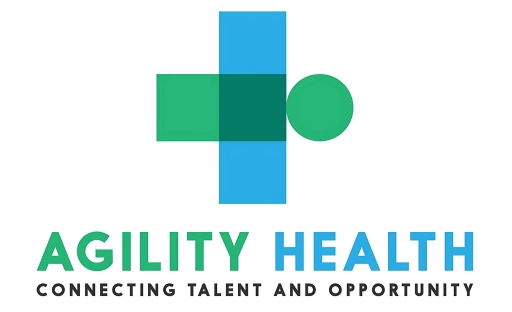How Working with an Agency Can Help Hospitals Save Money and Stay Within Budget
Introduction
Hospitals and healthcare facilities are constantly under pressure to manage their budgets while providing high-quality patient care. One of the largest expenses is staffing—hiring, training, and retaining skilled professionals can put significant strain on financial resources.
However, partnering with an agency to fill staffing needs can help hospitals not only save money but also reduce the risks associated with staff shortages, turnover, and compliance issues. In this post, we’ll explore how working with an agency can help hospitals stay within their budgets and maintain efficient, high-quality care.
1. Reduced Training Costs
Training new staff can be expensive and time-consuming. Hospitals often need to invest heavily in training programs to ensure that new hires meet the required standards in areas like mandatory clinical training, health and safety, and compliance with industry regulations.
How Agencies Save on Training:
- Pre-trained Staff: Agency workers typically come fully trained and certified, which means hospitals don’t have to invest in costly training programs. The agency ensures their staff meet the necessary standards, including compliance with mandatory healthcare regulations, before they are placed.
- Specialised Skills at No Additional Cost: Hospitals can hire agency staff with specialised skills for specific roles, such as critical care or emergency nursing, without incurring extra costs to train permanent staff in those areas.
- Compliance Ready: Agencies keep their workers up to date with mandatory compliance training, saving hospitals both time and money by ensuring workers are fully prepared and compliant when they arrive.
2. No Costs for Sick Days or Employee Benefits
One of the significant financial burdens of maintaining a permanent staff is covering costs for employee benefits such as paid sick leave, holiday pay, and pensions. These costs add up quickly and can strain a hospital’s budget, especially when staff members take extended time off due to illness.
How Agencies Reduce Costs Related to Sick Days:
- No Sick Pay Costs: When you hire agency workers, you don’t have to pay for sick days. If an agency worker calls in sick, the agency can send a replacement without any additional costs to the hospital.
- No Additional Employee Benefits: Hospitals can avoid the cost of pensions, paid leave, and healthcare benefits, which can be a significant expense for permanent employees.
- Maintain Staffing Levels: If a permanent staff member takes a long leave due to illness or personal reasons, hiring an agency worker ensures there’s no gap in care or need to pay overtime to other staff members, saving costs and reducing staff burnout.
3. Reduced Risk of Low Staff Retention
Staff turnover can be a costly issue for hospitals. The expense of recruiting, training, and onboarding new permanent staff every time someone leaves can place a huge strain on resources. Low staff retention also impacts morale, increases stress levels for remaining staff, and can lead to lower patient satisfaction.
How Agencies Help Manage Turnover Costs:
- No Long-Term Commitment: Agency workers provide flexibility without the commitment of a permanent contract. This reduces the risks associated with staff leaving after a short period, as hospitals don’t have to invest in their long-term development.
- Fill Gaps Instantly: With agency workers, hospitals can fill staffing gaps quickly, minimising the disruptions that often occur when permanent employees leave.
- Maintain a Stable Workforce: By using agency workers to cover short-term needs, hospitals can reduce the need for temporary hires or emergency recruitment drives, which often come with higher costs.
- Improved Work-Life Balance for Permanent Staff: Hiring agency workers to cover shifts prevents overburdening permanent staff, improving their work-life balance and reducing the risk of burnout or resignation.
4. Improved Budget Management by Flexing Staff Levels
In healthcare, patient demand can fluctuate. Staffing up permanently to meet peak demand can be wasteful when patient numbers decrease. Likewise, during times of higher patient volume, understaffing can lead to increased costs from overtime or rushed hiring.
How Agencies Help Flex Staffing Levels:
- On-Demand Staffing: Agencies provide flexibility, allowing hospitals to scale staffing levels up or down based on immediate needs. This prevents the need to hire permanent staff during seasonal increases or other temporary spikes in patient numbers.
- Avoid Paying for Idle Time: Instead of hiring permanent staff who may not be fully utilised during quieter periods, hospitals can hire agency workers only when they’re needed. This keeps labour costs aligned with patient volume and prevents unnecessary spending.
- Budget Predictability: Agency contracts often allow hospitals to set clear budgets for staffing, with no unexpected costs for overtime or additional training, helping hospitals stick to their financial plans more easily.
5. Compliance and Risk Management
Compliance with healthcare regulations is crucial but also costly. Non-compliance can result in fines, penalties, or even the loss of a hospital’s operating license. Ensuring that all staff meet mandatory training and certification requirements is a continuous effort that can strain a hospital’s resources.
How Agencies Help with Compliance:
- Agency Staff Are Pre-Compliant: Agency workers are required to meet all regulatory standards before they are assigned to work in any healthcare setting. The agency handles certifications, background checks, and mandatory training, reducing the risk of non-compliance for hospitals.
- Ongoing Monitoring: Agencies keep track of their workers’ compliance status and ensure their qualifications are up to date, saving hospitals the time and effort required to monitor compliance across their workforce.
- Avoid Regulatory Fines: By ensuring that all agency staff are fully compliant with health and safety regulations, hospitals can avoid costly penalties that may arise from staffing compliance issues.
Conclusion
Partnering with an agency can provide hospitals with a flexible and cost-effective staffing solution that reduces the financial strain of training, employee benefits, and staff turnover. By providing trained, compliant professionals who can be deployed on demand, agencies help hospitals maintain high standards of care without exceeding their budgets.
In a time where healthcare budgets are tighter than ever, working with an agency can provide a sustainable way to manage staffing costs while ensuring patient care remains a top priority.

